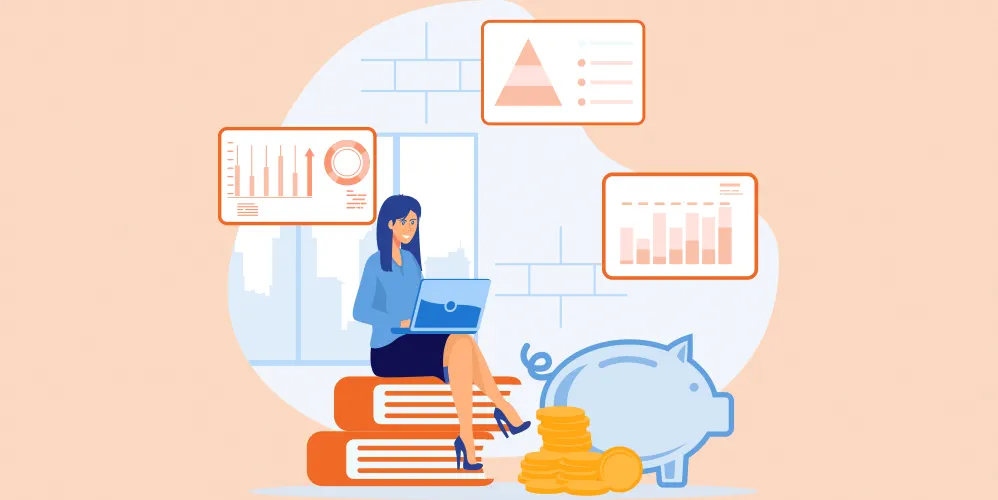
Understanding the Different Types of Cheques: A Comprehensive Guide
28 मार्च 2025

Table of Content
Cheques remain one of the most widely used financial instruments for transactions, offering a convenient and secure way to transfer money. However, not all cheques are the same. Each type serves a specific purpose and follows different rules. This blog explains the types of cheques, their uses, and how to handle them securely.
Introduction to Cheques
A cheque is a written, dated, and signed instrument that instructs a bank to pay a specific amount of money to the bearer or a named individual. While digital payments are on the rise, cheques are still used as a physical mode of payment.
What is a Bank Cheque?
A bank cheque is a negotiable instrument issued by a customer to authorize their bank to transfer funds to the recipient/payee. Cheques can be used for various purposes, including personal transactions, business payments, and even international remittances.
Types of Cheques Based on Issuer
1. Personal Cheques :
- Issued by individuals from their bank accounts.
- Commonly used for personal transactions like rent payments or utility bills.
2. Business Cheques :
- Issued by businesses to settle payments with suppliers, vendors, or employees.
- Often have larger transaction amount involved.
Types of Cheques Based on Payment Method
1. Bearer Cheques :
- Payable to the person holding (or bearing) the cheque.
- Easy to encash but less secure as anyone holding the cheque can claim the amount.
2. Order Cheques :
- Payable to a specific individual or entity mentioned on the cheque.
- Require proper identification for encashment, offering greater security.
Other Types of Cheques
1. Post-Dated Cheques (PDCs):
- Dated for a future date and can only be encashed on or after that date.
- Commonly used for EMI payments or rent agreements.
Also Read: What is Post Dated Cheque & How to Write it?
2. Stale Cheques :
- A cheque not presented within its validity period (presently 3 months).
- Cannot be encashed once it becomes stale or beyond three months from the date of issue, at present.
3. Traveller’s Cheques :
- Prepaid cheques designed for use during travel.
- Safer than carrying cash and accepted globally.
Pros and Cons of Different Types of Cheques
Pros :
1. Convenience :
Easy to use for both small and large transactions.
2. Security :
Certain cheques, like order offer enhanced security.
3. Documentation :
Provide a record of payments and serve as proof of transactions.
Cons :
1. Processing Time :
Cheques require processing time more than the digital modes available for making payments.
2. Risk of Fraud :
Bearer cheques and lost cheques can lead to unauthorized payments.
3. Stale Cheques :
Expired cheques cannot be used, causing inconvenience.
Also Read:Understanding Cheque Bounce Charges and How to Avoid Them
Conclusion
Cheques remain a trusted and widely used method of payment, offering flexibility and legal reliability. Understanding the different types of cheques, their purposes, and security measures ensures you can use them effectively and safely.
By being aware of their features, you can make better financial decisions and avoid risks associated with improper cheque handling. Whether it’s a personal cheque or a cashier’s cheque, knowing their nuances is key to secure and efficient transactions.
Popular Articles
Tag Clouds
Related Articles








What Is Joint Account? - Meaning, Benefits, Application Process & How its Work


-
डिस्क्लेमर
इस लेख/इन्फोग्राफिक/चित्र/वीडियो की सामग्री का उद्देश्य केवल सूचना से है और जरूरी नहीं कि यह बैंक ऑफ बड़ौदा के विचारों को प्रतिबिंबित करे। सामग्री प्रकृति में सामान्य हैं और यह केवल सूचना मात्र है। यह आपकी विशेष परिस्थितियों में विशिष्ट सलाह का विकल्प नहीं होगा । बैंक ऑफ बड़ौदा और/या इसके सहयोगी और इसकी सहायक कंपनियां सटीकता के संबंध में कोई प्रतिनिधित्व नहीं करती हैं; यहां निहित या अन्यथा प्रदान की गई किसी भी जानकारी की पूर्णता या विश्वसनीयता और इसके द्वारा उसी के संबंध में किसी भी दायित्व को अस्वीकार करें। जानकारी अद्यतन, पूर्णता, संशोधन, सत्यापन और संशोधन के अधीन है और यह भौतिक रूप से बदल सकती है। इसकी सूचना किसी भी क्षेत्राधिकार में किसी भी व्यक्ति द्वारा वितरण या उपयोग के लिए अभिप्रेत नहीं है, जहां ऐसा वितरण या उपयोग कानून या विनियमन के विपरीत होगा या बैंक ऑफ बड़ौदा या उसके सहयोगियों को किसी भी लाइसेंसिंग या पंजीकरण आवश्यकताओं के अधीन करेगा । उल्लिखित सामग्री और सूचना के आधार पर किसी भी वित्तीय निर्णय लेने के लिए पाठक द्वारा किए गए किसी भी प्रत्यक्ष/अप्रत्यक्ष नुकसान या देयता के लिए बैंक ऑफ बड़ौदा जिम्मेदार नहीं होगा । कोई भी वित्तीय निर्णय लेने से पहले अपने वित्तीय सलाहकार से सलाह जरूर लें।
Post-Dated Cheque: Meaning, Uses, and How to Issue One
In the world of banking and finance, cheques remain one of the most widely used instruments for payments and transactions. A post-dated cheque (PDC) is a cheque that is written for a future date, i.e., the date mentioned on the cheque is later than the actual date on which it is issued or today’s date. This cheque allows the drawer (the person writing the cheque) to pay a specified amount at a future date.
Dishonoured Cheques: How to Avoid Them and Handle the Consequences
Cheques remain one of the most widely used financial instruments for transactions, offering a convenient and secure way to transfer money. However, not all cheques are the same. Each type serves a specific purpose and follows different rules. This blog explains the types of cheques, their uses, and how to handle them securely.

